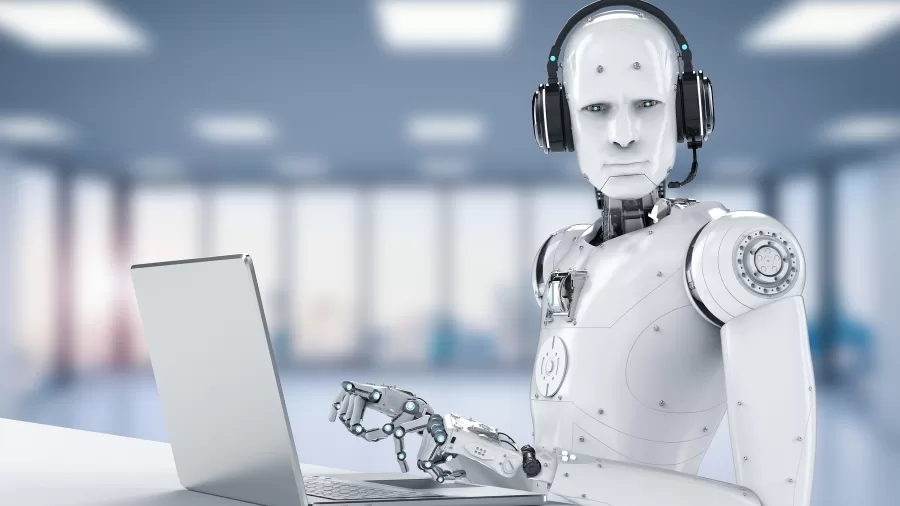Technology
From Check-Ins to Customer Service: Will Robots Handle It All?

- Such AI and robotics will constellate new horizons in all public-facing jobs by 2025.
- Automated jobs may leave several dead, but new ones will spring up, requiring upskilling and technical skills from old workers.
- These might do the routine work; however, they will be for those jobs that require emotional intelligence, judgment, and creativity.
The globe is about to witness a revolution that can be powered by artificial intelligence (AI) and robots. Most of these automations are being brought into the workplaces with great advancements in both areas. Between 2025 and 2030, will there be more robot employment in customer service, retail, and hospitality? According to the industry experts, the research studies conducted, and the trend itself, it is all but a fast-approaching reality; automation is no more a distant fantasy.
AI and Robotics in 2025: A Transformative Force
Oxford Economics concluded that robots and artificial intelligence would take place over the next few years in the future workforce. These two will shape industries such as healthcare, manufacturing, and retail. They can really change how customer-facing jobs happen or become quite effective and economical behind the scenes. The impact of AI and robotics will be such that by 2025, they probably could become an everyday part of a consumer’s experience-from responding to questions in stores to performing advanced surgery in a hospital.
Robotics are expected to step into yet more prominent roles, interfacing directly with customers and clients, having already had self-service kiosks and virtual assistants. This is one of the major areas where we expect big impacts. For example, automation initiatives range from the AI-powered chatbots handling all online inquiries to robots that greet guests coming to hotels. Customer service is going to take a hit like no other.
Jobs at Risk: The Automation Dilemma
Though they create great efficiencies and broaden the scope for creativity, the advent of artificial intelligence and robotics poses challenges to the labour force. A survey conducted by Research.com underlines growing anxiety with the advent of job loss due to automation, particularly in fields heavily dependent on repetitive tasks. Retail, hotel, and even call centers are experiencing growth in automation, according to robots when it comes to doing manual and repetitive tasks. Soon, check-ins, room service, and customer inquiries may be handled by robots in hotels reducing the need for human staff.
Pew Research Center’s report on AI and robotics envisions a future in which automation would literally disrupt the employment market. Many forecasts hold that AI-operated devices would be able to perform many middle-skill occupations that pop out with job losses where sales, consumer products, and services are involved. It is inevitable that human skills would then count differently in demand with other duties taken on by robots and AI systems. While some jobs would vanish, newer roles would evolve, often requiring higher technical competence and creative problem solving with a focus on those domains that still would need human empathy, judgment, and communication skills.
Balancing Automation and Human Touch
Though there is an increase in automation, robots are not likely to completely replace the human workforce. In fact, that will occur for jobs requiring emotional intelligence and complex decision-making. Connecting with others, disposition to seeing nuances in the way ideas are conveyed, and ability to show empathy are inherent in a human and not in a robot. These qualities, among others, make them so important in customer-facing industries such as healthcare and counseling.
Automation is likely to enhance, rather than reduce, jobs for humans. It will take over routine activities, which will allow employees to devote their time to work that is more valuable and those that require critical thinking and emotional intelligence. In retail, robots may facilitate inventory control and checkout processes, but human staff will still need to be available to provide customer care. They will make decisions on difficult enquiries and address those that require a personal touch.
The Future of Work: Upskilling and Flexibility
The new age of business transformation is bound to require a fast upgrading of skills by workers. In a future report by Pew Research, it can be learned that workers will require adaptation by learning needed skills within a few years to fit their needs for the changing labor market. Skills in programming, maintaining robotics, data analysis, and artificial intelligence management meant matching those workers with the employment requirements. Such institutions and companies ought now to get into partnerships to be able to equip the workforce with what it needs for survival in a fast-paced changing and competitive landscape.
To summarise, the future of work in 2025 and beyond would be closely entwined between man and machine: both artificial intelligence and robotics will be increasingly applied to positions that are usually client-facing. Though this transition will do wonders for efficiency, it is handled with caution as jobs will be displaced, and concerned are the skills to be generated and applied in the workforce. This makes it imperative for upskilling, adaptation, and collaboration between human and machine so as to bring about not only efficiency but also innovation and inclusivity in the robotics revolution.























































